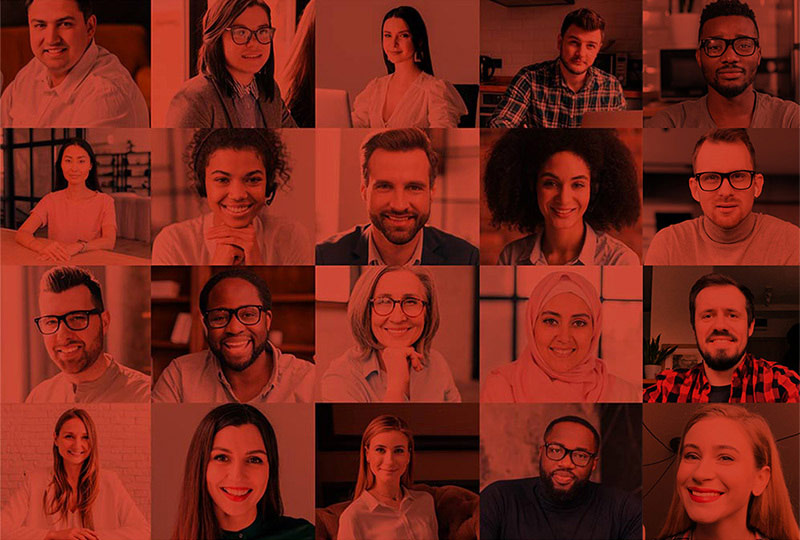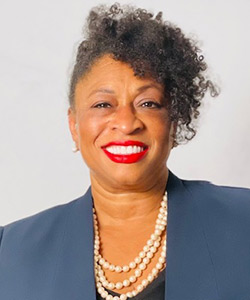By Traci Wade, Vice President, Global Head of Diversity and Inclusion, Oracle

A lot has changed in a relatively short time as far as how we in America appreciate the business imperative to create a more diverse and inclusive workforce. Rapidly shifting societal opinions have been impossible to ignore by corporations large and small, and, while we at Oracle pride ourselves as long having been on the leading edge of championing diversity and inclusion (D&I), the outcry for more action has not gone unoticed here. The calls imploring business leaders for faster progress have only motivated us to do more—to lead as an innovator, think more inclusively, and value more voices at the table.
So often, however, the historic injustices and social disparities that D&I initiatives seek to redress are seen through the lens of the American experience. But Oracle is not just an American company. We are global corporation whose customers span 175 countries, and we recognize that the goals of our D&I outreach can and should be applied across all of them.
To succeed in building a diverse and inclusive culture globally, we must be mindful of all of the dimensions of diversity that can differ from region-to-region, as well as social biases in different parts of the world. It’s by becoming more atuned to these distinct local characteristics that we can scale our goal of inclusive culture throughout our entire company, and subsequently benefit from more diverse viewpoints within it.
With that in mind, we recently prepared universal D&I imperatives that will drive a strategy representative of our global footprint.
First, achieving a more diverse and inclusive culture starts with understanding where we are and where we want to go. To this end, data and analytics are powerful tools to deliver insights that can spur real progress.
Then we must recruit in all our regions with the intention of increasing diverse representation. That means focusing on how we attract, connect with, and hire employees who will benefit our business through thought leadership forged by different kinds of life experiences and points of view.
We also want to embed this spirit of inclusion in how we develop talent by empowering employees with tools and resources to grow their careers and excel at Oracle.
Building community is another important goal. To that end, we strive to be good corporate citizens in the communities in which we do business, inspiring an inclusive workplace culture by sharing our values, and offering support and respect to all we encounter. We also achieve this through our various employee communities and allyship across Oracle.
Finally, as a leader in the technology sector, we want to invest in fostering diversity in our industry. That often means supporting the next generation of women and underrepresented minorities with internships, scholarships, and resources that help them be successful in this fast-paced and knowledge-intensive industry, so that they can, hopefully, become future employees of Oracle.
You can’t take a cookie-cutter approach to achieving these D&I strategies and expect them to succeed broadly. To ensure we appropriately recognize the stumbling blocks and the opportunities, we listen to and learn from our leaders and employees in different regions. They know their home countries—the legacies of the various communities and minorities within them, the traditions, cultural norms, languages, and the forces that hold some people back. It’s this kind of local insight that enables Oracle to be more sensitive to regional challenges and tailor programs to most effectively achieve progress toward creating a culture that welcomes all employees into our company and helps them all thrive in fulfilling careers, where they can be authentically who they are.
Global diversity and inclusion, rooted in cultural competency, is not only the right thing to do as a corporate citizen of the world—it’s also a winning business strategy.

Traci Wade
As Oracle’s Vice President and Global Head of Diversity & Inclusion, Traci Wade leads programs that build awareness on the business impact and value of a diverse and inclusive culture at Oracle. She engages with senior leadership in creating and supporting strategies that infuse and elevate a culture of inclusion and equity.
During her career at Oracle, she has played a key role in establishing the company’s first diversity and inclusion team in 2009. Since then, Traci has become a strategic thought leader and subject matter expert on diversity and inclusion.
Traci has received recognition and awards for her commitment and success in leading Diversity & Inclusion corporate efforts, which include 2021 Profiles in Diversity Journal Women Worth Watching, 2017 Top Diversity and Inclusion Executives in Corporate America by Black Enterprise Magazine, Bridging the Gap Award by 2015 by San Francisco African-American Chamber of Commerce, Corporate Champion of the Year in 2012 by Black Data Processing Associates, Rising Star at the Women of Color STEM Conference in 2013 and Outstanding Corporate Contributor by Black Data Processing Associates in 2013.







I compared your posts and I like your posts. They are great information and This is certainly great work.